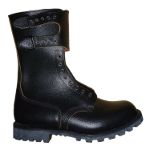Debian: switch to UEFI boot

For those interested, here is a way to install Debian and boot it with UEFI if you have an UEFI motherboard. Using UEFI with Debian requires expert knowledge so if you do not feel up to it, keep your BIOS system.
1 Background
UEFI is a specification for motherboard's firmwares which is replacing the old BIOS. For now, UEFI motherboards still include a BIOS compatibility layer.
The UEFI boot process is quite different from the BIOS one. It involves one specific piece of the motherboard's firmware, the UEFI Boot Manager, which is able to load boot loaders from FAT file systems on specially-typed partitions. It can offer a boot menu (boot: Debian from HDD, Windows from HDD, USB stick, DVD?), which can be configured from a running operating system.
So, basically, to boot a system with UEFI, you need two things:
- to install an UEFI boot loader on a FAT-formated EFI System Partition;
- to tell the UEFI Boot Manager to create an entry for that boot loader.
Booting with UEFI

I have just bought a new motherboard, a ASRock E350M1/USB3 with and embedded AMD E350 processor. I was mostly interested in trying the embedded GPU and the UEFI firmware (UEFI is simply the name of EFI 2).
According to ASRock's marketing, the main benefit of that UEFI is its graphical interface that allows to use the mouse to configure the board. I cannot agree with that, because I think it is perfectly possible to implement that with a BIOS (and I think some BIOSes actually do it), and it is pointless anyway. For me, the main benefits are a faster and cleaner boot (no idea why it should be faster, but it is).